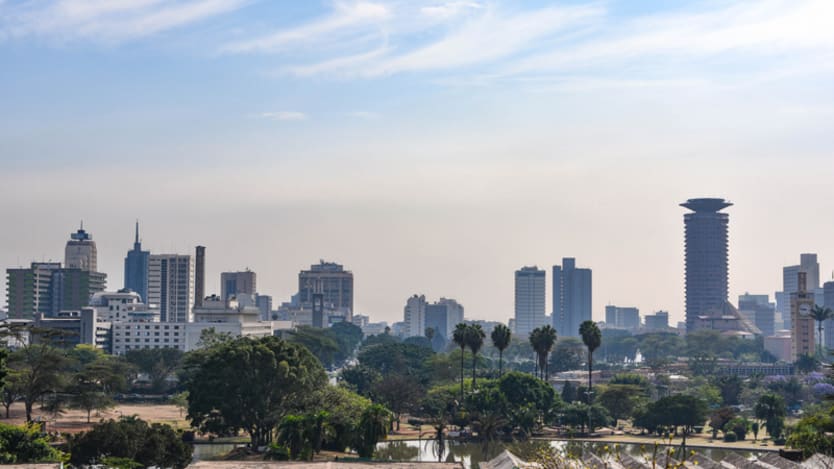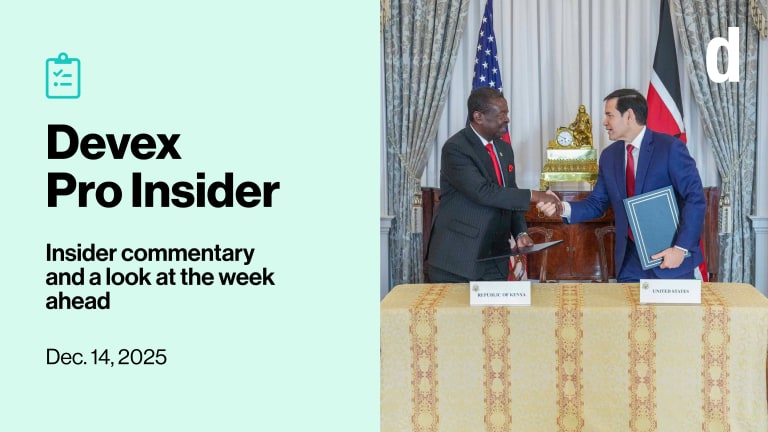
NAIROBI — Kenyan tax authorities, accompanied by the police, raided the Nairobi office of pro-democracy organization Africa Centre for Open Governance on Wednesday morning, just two days after also threatening to deregister the Kenya Human Rights Commission. The government’s NGOs Coordination Board alleges that the organizations committed administrative offenses, including failing to abide by tax obligations.
Both organizations targeted had been involved in monitoring Kenya’s Aug. 8 general election, which saw incumbent President Uhuru Kenyatta top opposition candidate Raila Odinga. The latter has called the results fraudulent and said on Wednesday he will take his challenge to the Supreme Court.
On Monday, the NGO Coordination Board said it was deregistering the KHRC, accusing it of using illegal bank accounts and neglecting to pay its taxes, among other allegations. The following day, it sent a letter to Kenya’s Director of Criminal Investigations, asking him to close AfriCOG and arrest its directors and members.
The moves have been met with both domestic and international condemnation. At a press conference on Wednesday, Odinga said that the raid was intended to “silence all voices that could seek legal redress.”
The EU Election Observation Mission, in a release on Wednesday, called on the Kenyan authorities to “give civil society the space and security to work towards greater democracy for Kenyans.” Amnesty International UK released a statement on Tuesday, calling it a “witch-hunt.”
Not everyone in the government appeared to be onboard with the NGOs Coordination Board actions toward the NGOs, either. Following the raid on Wednesday, the acting Interior Minister Fred Matiangi’i sent a letter to the head of the NGOs Coordination Board suspending any action on the organizations for 90 days so that the organizations and stakeholders can engage with the NGOs Coordination Board to work out noncompliance issues.
Political motives?
Haron Ndubi, a lawyer for AfriCOG, told Devex that he believes Kenyatta holds a “grudge” against civil society for their continued scrutiny of his administration, including challenging the election results in 2013 and their perceived role in providing information to the International Criminal Court. Kenyatta won the 2013 elections even though he was indicted by the ICC in connection with violence after the 2007 election. The charges were later dropped.
“There is also a possibility that this is intended to distract the country from the serious questions that are being asked around the credibility of the just completed election,” said Ndubi.
AfriCOG had questioned the nation’s preparedness in the lead up to the vote and KHRC had been critical of the torture and murder of a key election official in the week leading up to the election.
This is not the first time that the KHRC collided with the NGOs Coordination Board. In 2015, NGOs Coordination Board said it carried out an audit of over 10,000 NGOs and found 957 noncompliant, asking that the Central Bank of Kenya and the Kenya Bankers Association to freeze the bank accounts. KHRC went to court and got the orders dismissed. The organization was similarly challenged by the board in early 2017.
The organizations are taking steps to take this issue to the Supreme Court to get an order to stop the “arbitrary violations” against NGOs, said Ndubi.
Read more international development news online, and subscribe to The Development Newswire to receive the latest from the world’s leading donors and decision-makers — emailed to you free every business day.
Read more Devex coverage of the Kenyan elections:
▶ Inside humanitarian efforts to prevent and respond to Kenya election violence
▶ Kenyans head to the polls, Nairobi streets tentatively calm
▶ Kenya election: NGOs lean on local influencers to temper risk of violence
▶ Monitors grapple with how to measure social media's role in Kenyan election
▶ Q&A: Dr. Alex Awiti on how the Kenyan elections could impact development








